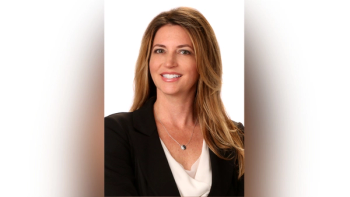
- Applied Clinical Trials-08-01-2021
- Volume 30
- Issue 7/8
Bringing Clinical Trials to the Point of Care
Physicians share their experiences integrating research into practice.
At the end of April, The Conference Forum’s Clinical Research as a Care Option, or CRAACO, featured a fireside chat with emerging investigator physicians. These physicians— Ron Blair, MD, President, Forest Lane Pediatrics; Charlotte Grayson, MD, Partner and Internist, First Georgia Physician Group and Tina Kennelly, MD, Director of Tryon Medical Partners—have only been in research for approximately one year. Jennifer Byrne, CEO of Javara, an Integrated Research Organization (IRO) which brings clinical research into healthcare organizations allowing patients and doctors access to trials at the point of care, served as moderator of the discussion. While the physician investigators did partner with Javara to integrate clinical trials into their practices, the insights they shared were specific to their practice’s and patients’ experiences. Byrne acknowledged that their combined efforts led to 2,000 people being enrolled in clinical trials that a year ago would not have had exposure. Byrne also acknowledged that Javara moves “together in partnership with like-minded healthcare organizations, providers, healthcare leaders that actually see the value in research.”
What follows is a summary of their discussion.
Grayson is partner and internist at First Georgia Physician Group located in Fayetteville, Georgia, about 30 miles south of Atlanta. The population around the multi-specialty practice is suburban, somewhat rural, but also draws on the southern Atlanta area. The internal medicine patients start at 18 years of age through end of life and the practice treats many palliative care and hospice patients, as well as complex cases of patients throughout the range of internal medicine. Grayson also noted that the patients were very diverse, with a 90% female base, and a majority of African American, Latino or Southeast Asian descent. “The opportunity to bring research to this population, who tend to be underrepresented in clinical trials, was something I was really excited about. But I also knew that I was going to be facing some challenges with these patients, where many have never heard of research,” Grayson said.
For the majority of physicians in Grayson’s practice, their exposure to research was limited to their residency and training days. They needed refresher-training, as well as full training for the staff, to learn how to present research to patients and answer questions. “As we started to ramp up clinical trials, we did a kind of bedside education with them so that they understood what these trials were and how to interact with our patients.”
Tryon Medical Partners, based in Charlotte, North Carolina, is a fairly new practice, which broke off from a nearby hospital system approximately three years ago. The multi-specialty group includes cardiology, dermatology, rheumatology, endocrinology, as well as Kennelly’s specialty internal medicine. She says her primary focus is on women’s health and preventative care. The group didn’t have a formal research department and wanted to offer research as an option for patients because of what they felt were the inherent patient benefits. “We thought that it would provide a higher touch option for patients. Maybe patients who weren’t as well controlled in their diabetes could get enrolled in a diabetic study and we could couple them with trainers, as well as clinical trial navigators and get them involved. Again, providing a high touch option that would hopefully improve their care overall.”
Kennelly explained that the group began with smaller trials, an anxiety trial and atrial fibrillation, both device trials. But when they were offered COVID vaccine trials, they had to ramp up research pretty quickly. Of the one hundred physicians in the practice, 50% have been trained as investigators or sub investigators. “It took a lot of support and infrastructure to get our group—who was pretty naive because we are a young practice—where we are today. We’ve done the Moderna COVID vaccine trial, as well as the Janssen ENSEMBLE 3001 trial. So having a lot of support on the ground with Javara integrated into our clinical atmosphere helped us get patients involved and enrolled in these trials.”
Ron Blair has nearly 30 years of experience caring for pediatric patients. His practice in Northern Texas, Forest Lane Pediatrics, has a primary focus on infants to age 19, but also includes a multi-specialty group with internal medicine, family practice, and OB-GYN among other specialties. Blair began working with Javara earlier than the other two practices, and he said the relationship has benefited his patients, in addition to being fun and interesting. “We’ve taken a step-by-step approach with a lot of guidance from Javara because our group didn’t have extensive experience with [clinical trials]. We spent time training our clinical investigators and preparing a nice portfolio of our different specialties,” said Blair.
The patients
For the patients, Kennelly thinks they have a better sense of support when they are involved with research. “For some of these trials, we’re seeing patients once every other month, but in between, we’re talking to them on the phone. Sometimes once or twice a week, sometimes every day for a couple of days for short periods of time. That allows them to voice their concerns and ask questions, and it allows more interactions for the physician or the PI or sub investigator. The patients also interact with the clinical trial navigators and assistants. Overall, the patient does enjoy the experience and when integrated with primary care and their own PCPs, I think clinical trial retention rates are higher because of the attention from their provider.”
As predicted, Grayson said their staff spent time with patients helping them understand their clinical research options. “I did notice many patients, in some respects, still have a lot of mistrust for the medical community. But I have found that they actually do trust their provider. And if we come to them and talk to them about the benefits of the research, they trust that coming from their own provider,” she said. Grayson also sees that the patients are excited to participate when asked, and spread the word to friends and family. Because of the practice population, and history of underrepresentation, Grayson believes that the clinical research information and understanding for them is enlightening. And she believes that in the bigger picture, it is important to continue to try to include these populations.
Blair’s practice initially sent queries to patients in the form of a survey asking if they would be interested in participating in relevant clinical trials. The response was more enthusiastic than they predicted. “When we interview people, there are several questions about clinical research. Our patients trust our ongoing focus on their continuum of care and gladly share appropriate information relevant to potential clinical trials. So it’s been very good for the patients and good for my staff and good for the other physicians involved.”
Blair, who did have exposure to clinical research during his residency training, is proud of the number of physicians who signed on for clinical investigator training. “It’s pretty exciting for all of us to be involved in contributing to the fund of knowledge. And also that we’re able to provide services and potential treatments to our patients that we would not have been able to previously.” Blair credits Javara for opening doors to research for practicing physicians that previously was just in the domain of academic institutions.
Articles in this issue
over 4 years ago
Patient-Tested Practices for In-Home Trialsover 4 years ago
Properly Training Physicians in Dermatology Trialsover 4 years ago
Moving into the Future of Clinical Trialsover 4 years ago
Innovations in Data Capture Transforming Trial Deliveryover 4 years ago
The Future of Clinical Trial Design Looks Brightover 4 years ago
Addressing Medication Adherence Challengesover 4 years ago
HERA, A Matriach's Device to Save Europeans from the Next COVIDover 4 years ago
Cyberattacks: It’s Not “If,” But Whenover 4 years ago
Applied Clinical Trials July/August 2021 Issue (PDF)Newsletter
Stay current in clinical research with Applied Clinical Trials, providing expert insights, regulatory updates, and practical strategies for successful clinical trial design and execution.




